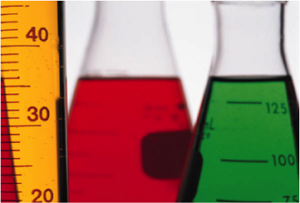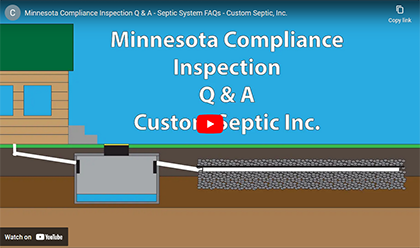 Marketers, flashy graphics, and commercials can mislead you into believing certain products are necessary – even septic additives. RID-X claims its product will extend the life of your tank by helping ensure regular maintenance, inspection, and cleaning will keep your septic tank functioning optimally for years to come. But what exactly are these products, and do they work? Is spending money on them a waste? To find out the truth behind this claim we’ll examine some of the finer details behind this claim.
Marketers, flashy graphics, and commercials can mislead you into believing certain products are necessary – even septic additives. RID-X claims its product will extend the life of your tank by helping ensure regular maintenance, inspection, and cleaning will keep your septic tank functioning optimally for years to come. But what exactly are these products, and do they work? Is spending money on them a waste? To find out the truth behind this claim we’ll examine some of the finer details behind this claim.
What Are Septic Additives?
Let’s first examine how your septic tank functions. Solid waste accumulates on the bottom, while oils and fats float to the top. Over time, this waste takes up space until there is no room for liquid. At that point, pumping may become necessary. Many companies advertise that their additives can quickly break down solids, so your tank fills up faster without needing frequent pumping sessions.
Two kinds of additives are available in the septic aisle: biological additives that claim to use bacteria and enzymes for breaking down solids at the bottom of the tank; chemical additives (mainly sulfuric acid-based) have active ingredients which break down oil and grease floating inside.
Are Septic Additives Effective?
Google searches can yield many colleges that have conducted studies about the effects and use of biological additives. It is interesting to note that there is no definitive proof that these additives work, nor is it possible to prove they don’t. It is important to note that chemical additives are hazardous; not only do they break down solid waste, but they also corrode the tank, contaminate soil and groundwater sources with toxic chemicals leaching through the drain field.
Better methods to maintain the right bacteria levels in your septic tank
To guarantee that your septic system functions optimally, be mindful of what goes down the drain. Don’t treat toilets and sinks like trash!
● Use caution when using harsh chemicals like bleach, paint thinners and pesticides on your system. They can damage the bacteria responsible for keeping everything running smoothly.
● Garbage disposals should never be used in a home with a septic system. They can overload the system and lead to organic solid buildup which the bacteria cannot handle.
● Inorganic materials like feminine hygiene products, cat litter, cigarette butts, or paper towels should never be flushed down the toilet as they can clog your sewer tank with non-biodegradable substances.
● Reduce the amount of water you use; conserve whenever possible: Run the dishwasher only when full and combine laundry loads.
Septic tanks are typically self-sustaining and contain bacteria colonies that help break down organic material. When facing issues with your system, it’s best to seek professional assistance from certified professionals like those at Custom Septic in Big Lake, MN. Our team has extensive expertise in septic system repair and upkeep. We can ensure your system runs optimally without the need for additives or other chemical treatments.

 Now Accepting Major Credit Cards!
Now Accepting Major Credit Cards!
